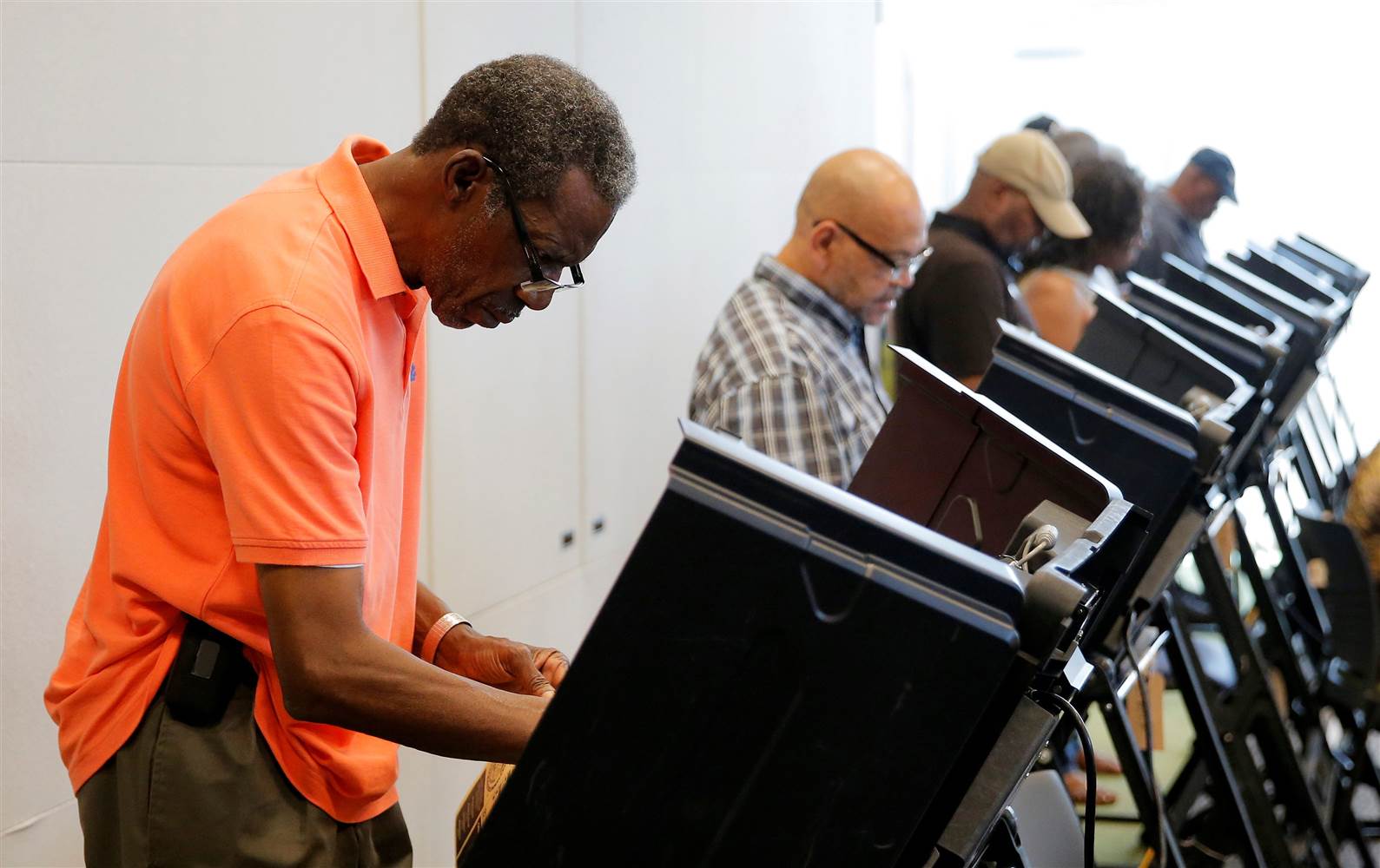By William Golden
In October of 2019, the Georgia Secretary of State’s office announced that roughly 313,000 voters would be removed from the voter lists. Voter purges like this one have come under fire from voting rights activists, who claim such purges unfairly affect minority voters. An analysis by the Atlanta Journal-Constitution concluded that there appears to be no form of discrimination in Georgia’s case, with all races being removed from the voter list at approximately the same proportions at which they compose it. However, past laws in the South have been used to disenfranchise minority voters, specifically African Americans. Recent complaints have not fallen on deaf ears; former Democratic gubernatorial nominee Stacey Abrams has echoed many of them.
A democracy is only as free as its elections. State elections are no different. Every citizen deserves the right to participate in fair and free elections. In 1920, the 19th Amendment provided women with the right to vote nationwide. In 1924, the Snyder Act extended citizenship to those born into Native American tribes, thus extending the right to vote to Native Americans. However, in practice, achieving fair and free elections would take much longer in the South. Through Jim Crow laws, poll taxes, literacy tests, grandfather clauses and intimidation, Southern political leaders disenfranchised minority voters after Reconstruction until the Voting Rights Act of 1965. Until the passage of the Voting Rights Act, the federal government could do little to guarantee the right to vote for minority voters in the South. The Voting Rights Act of 1965 was specifically designed to protect African American voters in the South and it was not until the passage of the Voting Rights of 1975 that other minority groups were incorporated on the basis of language. The Voting Rights Act of 1965 and 1975 included provisions that allowed the Department of Justice (DOJ) to step in and prevent discriminatory practices in voting. Some of these provisions were struck down in Shelby County v. Holder (2013).
In Shelby County v Holder (2013), the Supreme Court struck down Section Four of the Voting Rights Act on the grounds that Congress had overstepped and violated key principles of federalism enshrined in the United States Constitution. Section Four was responsible for creating the criteria, often dubbed the “coverage formula,” under which Section Five would apply to the states. The triggers for Section Four included: a discriminatory voting measure, less than 50 percent turnout in the last Presidential election, and a sufficient minority population. Under Section Five, “covered” states would be required to pre-clear changes with the District Court of Washington, D.C. or the DOJ. The Supreme Court ruled that “The Voting Rights Act of 1965 was enacted to address entrenched racial discrimination in voting, an insidious and pervasive evil which had been perpetuated in certain parts of our country through unremitting and ingenious defiance of the Constitution,” but determined that the Voting Rights Act had departed “from the fundamental principle of equal sovereignty requires a showing that a statute’s disparate geographic coverage is sufficiently related to the problem that it targets.” Congress reauthorized the Voting Rights Act in 2006. However, when the Supreme Court issued its 5-4 decision, it rendered Section Four unconstitutional and Section Five unenforceable without a “coverage formula.” It should be noted however the Supreme Court did not abandon the Voting Rights Act entirely, leaving other Sections intact.
Equally as important as guaranteeing the right to vote is the need to secure elections. Preventing forms of voter fraud and election interference is necessary for the sake of creating, to the fullest possible extent, free and fair elections. This should not be a political issue, but a bipartisan one. Federal funding should be distributed to the states to update outdated voting infrastructure and to increase the rate of advancements in cybersecurity dedicated to protecting voting infrastructure. Social media sites, such as Twitter and Facebook, should be regulated in an effort to prevent the manipulation of information related to elections.
Efforts to prevent voter fraud should also be considered. The ability to participate in elections should be both free and fair. The creation of a free, statewide voter identification is a potential solution to combat individual voter fraud without discriminating along racial or socioeconomic lines. Any such law that has an adverse effect on minority voters would likely be deemed unconstitutional and also fail to achieve its goal of creating free and fair elections in favor of unfair ones. Elections should guarantee that those who have the right to vote are indeed the ones voting.If Congress desires to provide extra protections to historically disadvantaged minority voters in the South, it must first develop a “coverage formula” that is consistent with the U.S. Constitution, especially the principles of equal sovereignty and federalism. Developing new constitutional protections would allow the federal government to continue to require “preclearance” for changes to voting laws and alterations to the voter lists. It may be as simple as using new data and increasing the ability of a state to remove itself from the “coverage formula.” However, Congress, in a similar fashion to the Court, may deem Section Four to be unnecessary and decide that the historical barriers to voting, especially in the South may be exactly that—a thing of the past.
